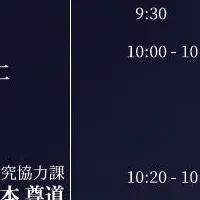
From Havana to Beijing: A Heartwarming Journey of Cross-Cultural Friendship
Cross-Cultural Bonds from Havana to Beijing
In a heartwarming story recently featured by a Chinese vlogger known as "Missaya in Australia," a profound connection is revealed between two distant lands—Cuba and China. The video showcases an evening encounter with an elderly Cuban man who warmly referred to the vlogger as "Chinita," a term of endearment meaning "Chinese girl." This touching moment resonated deeply with many viewers in China, reigniting interest in the friendship between these two nations.
The elder, affectionately named Tito, has an interesting background as a former pilot who spent his formative years studying in China. Although language barriers made their conversation a bit challenging, it was imbued with warmth and affection. Tito fumbled as he asked the vlogger to pause for a moment while he retrieved precious mementos from his time abroad—a weathered Chinese diploma and a notebook filled with Chinese characters, along with a significant date sketched into his hand: 1961. These items represent not just his education but also cherished memories of a time when China opened its doors to a wave of young Cuban students.
The fascination with Tito's story sparked a trend among Chinese netizens eager to discover connections with their own elders from the past. The Chinese Air Force confirmed Tito's accounts and referenced historical records that document the era of deep ties between both nations. In 1960, Cuba became the first Latin American country to forge diplomatic relations with China, establishing a bond that saw 223 Cuban youths, all under 20 years old, traveling to China in 1961 to learn aviation.
As part of their educational experience, these Cuban students were embraced by Chinese instructors who made every possible effort to ensure comfort, from food and cultural practices to interactive teaching methods. The commitment from the instructors was clear: "The students are far from their homeland; their habits and climate are different here. We must create a warm and comfortable living environment for them..."
In the wake of challenges in Cuba, Tito and his peers sought to graduate early to contribute to their homeland's aviation sector. Known collectively as the "Chinese" pilots within the Cuban Air Force, these young men became instrumental figures in Cuba's air travel landscape. The Chinese Air Force recognized their contributions with an enduring promise: "Please believe that the Chinese Air Force will not forget its old friends; we are confident that the friendship transcending time and space will always continue!"
Recently, Tito's story took another sentimental turn. The Chinese Embassy in Cuba hosted an event to honor Cuban veteran pilots who once studied in China, inviting them and their families to celebrate the Lantern Festival—a traditional Chinese holiday. This gathering not only served as a nostalgic reunion for the veterans but also featured them singing Chinese songs together, bridging cultures through music and shared history.
Marcel Proust eloquently described in his work, "In Search of Lost Time," the essence of a true reunion as a rekindling of souls. More than sixty years later, the memories of Havana have traveled to Beijing, allowing a younger generation to connect with echoes from the past. As the years roll on and journeys become more complex, the faith and spirit of these individuals remain unchanged, solidifying bonds that traverse great distances. This is a testament to the essence of international solidarity and camaraderie—an inspiring love story that transcends borders.
In essence, the friendship that blossomed between Cuba and China in the 1960s continues to thrive today, proving that true connections are timeless and can ignite hope across generations.
Topics People & Culture)










【About Using Articles】
You can freely use the title and article content by linking to the page where the article is posted.
※ Images cannot be used.
【About Links】
Links are free to use.